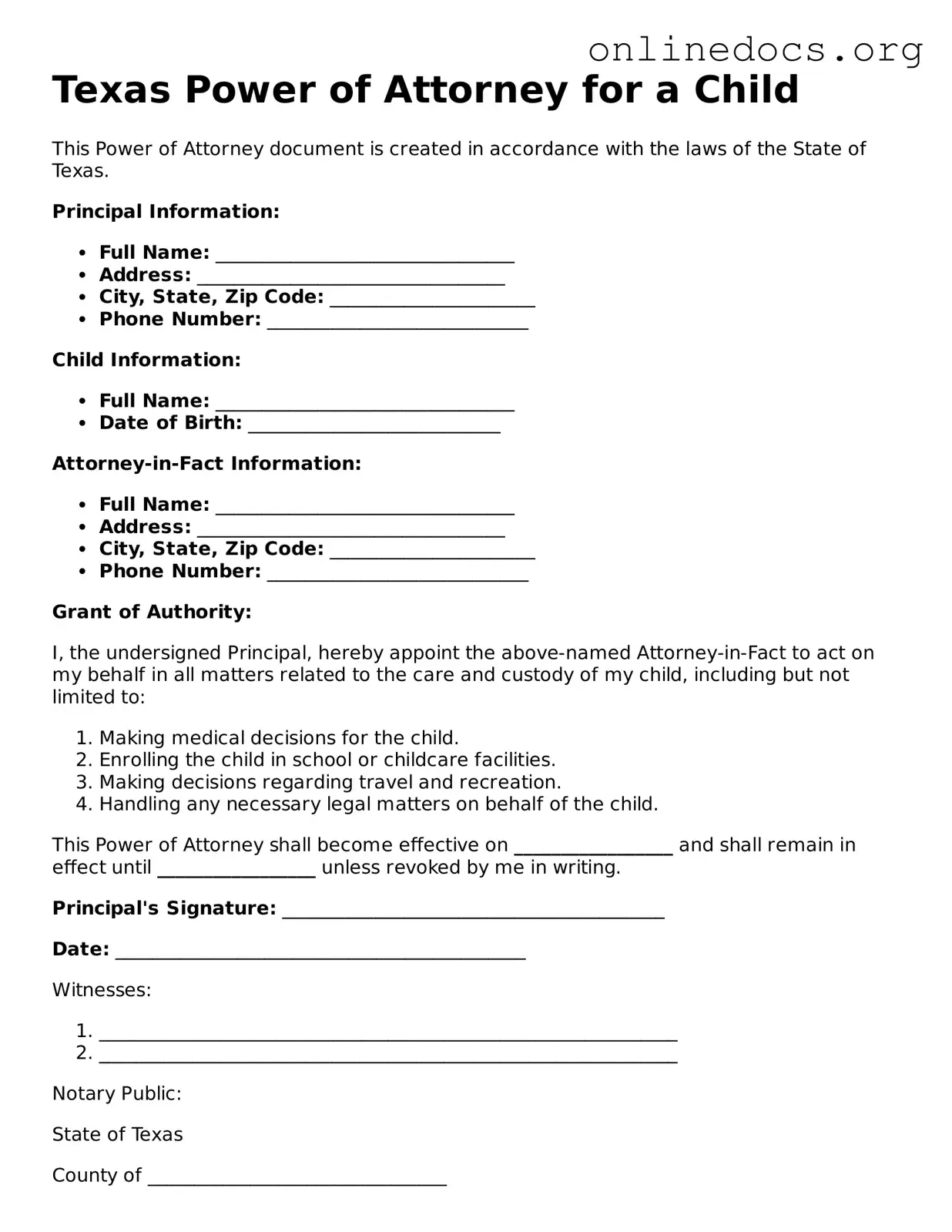The Texas Medical Power of Attorney is a document that allows an individual to designate someone to make medical decisions on their behalf if they are unable to do so. Similar to the Power of Attorney for a Child, this form grants authority to another person, ensuring that the individual's health care preferences are honored. Both documents require clear identification of the parties involved and must be signed in accordance with Texas law to be valid.
To ensure you submit a strong application, consider utilizing a thorough Recommendation Letter template that can guide you through the process and highlight key aspects of your achievements.
The Texas Statutory Durable Power of Attorney is another related document. It permits a person to appoint an agent to manage their financial affairs. Like the Power of Attorney for a Child, it provides a clear framework for authority and responsibilities. Both documents serve to protect the interests of the individual by allowing trusted persons to act on their behalf in specific situations, whether related to health care or financial matters.
The Texas Child Custody Agreement outlines the terms of custody and visitation for children. While it primarily focuses on parental rights and responsibilities, it shares similarities with the Power of Attorney for a Child in that both documents are designed to protect the welfare of a child. They both require careful consideration of the child's best interests and often involve the same parties—parents or guardians—making decisions for the child.
The Texas Guardian Appointment is a legal process where a court designates a guardian for a child. This document is similar to the Power of Attorney for a Child in that it establishes a trusted individual to make decisions for the child. However, while the Power of Attorney can be temporary and does not require court approval, a guardian appointment is a more formal arrangement that involves judicial oversight and is typically more permanent.
The Texas Affidavit of Heirship is a document used to establish the heirs of a deceased person. While it may seem unrelated at first, it shares the common theme of ensuring the rightful care and management of a child's inheritance or estate. Both documents aim to clarify authority and responsibilities, protecting the interests of minors in different contexts.
The Texas Adoption Agreement is a legal document that formalizes the adoption of a child. This document, like the Power of Attorney for a Child, emphasizes the importance of providing a safe and supportive environment for the child. Both documents require the consent of the biological parents and involve careful consideration of the child's best interests, ensuring that their welfare is prioritized.
The Texas School Authorization Form allows parents to grant permission for their child to participate in school activities or to authorize school personnel to make decisions regarding the child's education. Similar to the Power of Attorney for a Child, this form empowers trusted individuals to act in the best interests of the child. Both documents emphasize the importance of parental involvement and consent in matters affecting the child's well-being and development.
